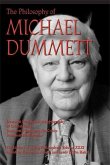The polymath Michael Polanyi first made his mark as a physical chemist, but his interests gradually shifted to economics, politics, and philosophy, in which field he would ultimately propose a revolutionary theory of knowledge that grew out of his firsthand experience with both the scientific method and political totalitarianism. In this sixth entry in ISI Books’ Library of Modern Thinkers’ series, Mark T. Mitchell reveals how Polanyi came to recognize that the roots of the modern political and spiritual crisis lay in an errant conception of knowledge that served to foreclose any possibility of making meaningful statements about truth, goodness, or beauty. Polanyi’s theory of knowledge as ineluctably personal but also grounded in reality is not merely of historical interest, writes Mitchell, for it proposes an attractive alternative for anyone who would reject both the hubris of modern rationalism and the ultimately nihilistic implications of academic postmodernism.


![Genealogical Record and History of the Bittner-Werley Families: Descendants of Michael Bittner, Sebastian Werley, [1753-1930] / Compiled by Jacob Webs Genealogical Record and History of the Bittner-Werley Families: Descendants of Michael Bittner, Sebastian Werley, [1753-1930] / Compiled by Jacob Webs](https://bilder.buecher.de/produkte/64/64527/64527961m.jpg)





